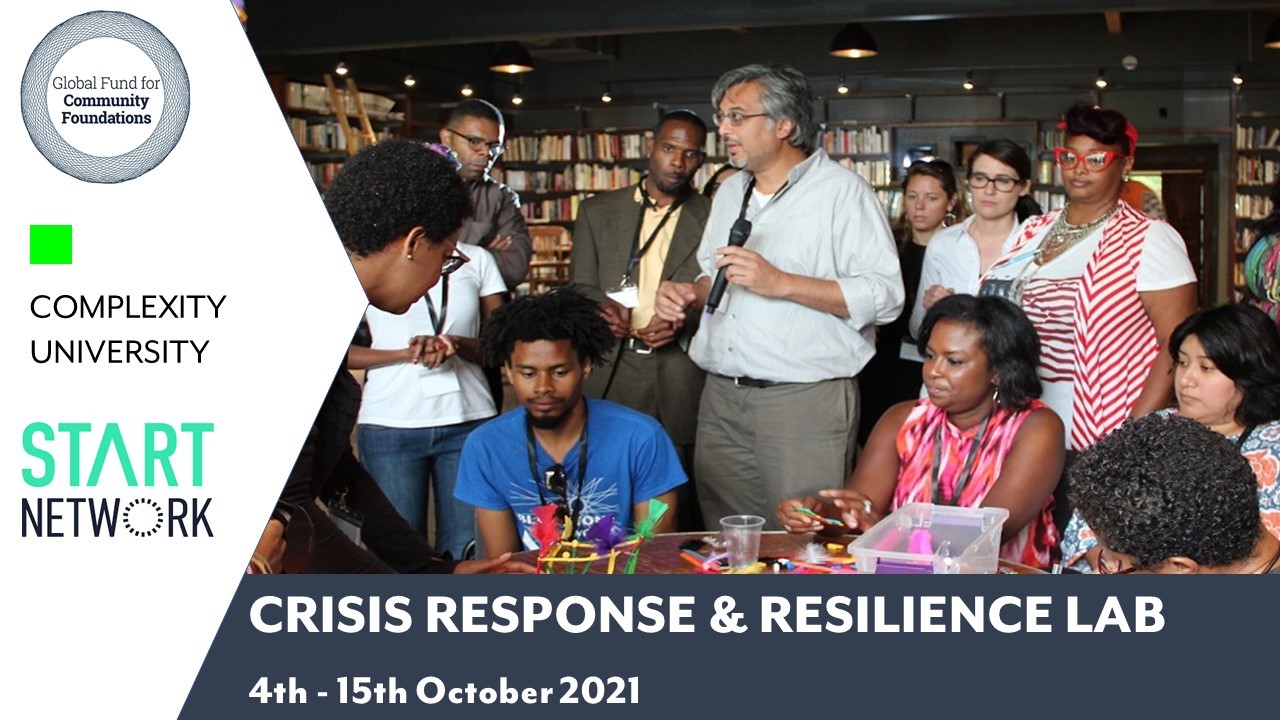An experimental learning opportunity with Complexity University
10 Sep 2021
The Crisis Response and Resilience Lab is NOT a training course. This will NOT tell you how to redesign a flawed system. It WILL challenge your assumptions, and offer new ways to tackle complex problems.
How can we work together to transform the international humanitarian aid sector from the ground up?
Conflicts, extreme weather events, droughts, earthquakes and, most recently, COVID-19… communities around the world are facing increasingly complex crises, yet the international aid sector is failing to deliver on their needs.
Top-down, bureaucratic, and riven with asymmetries in power between Global North and South – the humanitarian aid and development system is centred around a business model which is biased towards Western actors and UN agencies (funded primarily by Western donors). Local actors and the crisis-affected communities in which they are based are frequently omitted from resource flows, decision-making and structural efforts to change the system.
The system is widely recognized as inefficient, under-delivering the impact it’s charged to create and slow to adapt. The cost of this failure is carried by crisis-affected people who receive inadequate or inappropriate aid after crises and aren’t well-enough supported to build their resilience to crises.
At the same time, new ways of deciding and doing are emerging from the ground up – often outside the framework of “humanitarian aid” or “localization.” These emerging practices are closer and more relevant to the communities they serve. They emphasize the role of local resources, grassroots grant-making and participatory decision-making in shifting power – and stand to play a vital role in reaching and mobilizing communities.
You are invited to join a radical, action-focused innovation programme for community-led impact in the humanitarian and development sectors
Teams of 10 – 15 people will work together with the support of 2 coaches from Complexity University to deepen their understanding of complexity, and practice a new approach to designing, testing and implementing effective community-led solutions – at pace and in a low-risk learning environment. A team might look like:
- Members of different organizations who are working in the same community or location.
- A multi-stakeholder group including community members local government and members of local or international organizations.
- Diverse community actors with an interest to practice closer collaboration.
- A team from a single organization who are keen to unlearn conditioned strategic responses and practice new ways of working.
Course fees are $199 per person. The GFCF may be in a position to subsidize or partially subsidize course costs for GFCF partners.
I’m interested! What should I do next?
- Read more about the Crisis Response and Resilience Lab and consider if this sounds like a good opportunity for you and a group you are currently working with.
- Express your team’s interest at this link.
- Send an email to Wendy Richardson at the GFCF (wendy@globalfundcf.org) and let us know you have expressed interest.
If your team is accepted to join the Lab, we will be happy to discuss further practicalities – including course costs – with you then.


